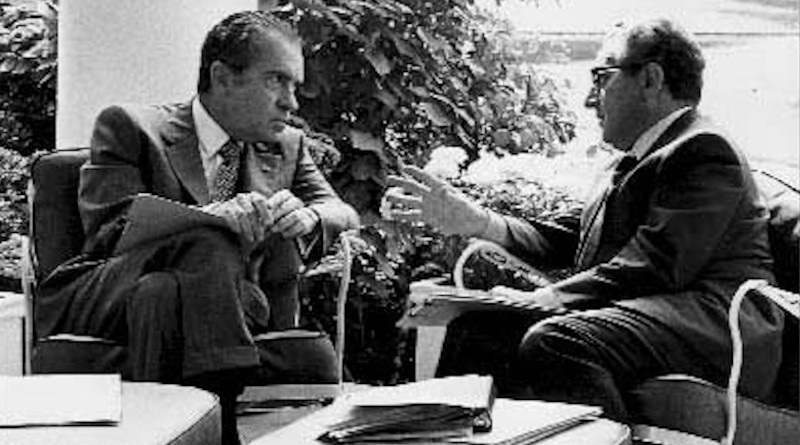Henry Kissinger: A Tangled Legacy – OpEd
America’s most notable diplomat and presidential adviser, Henry Kissinger, passed away at his home in Connecticut on Wednesday, November 29, at the age of 100. He leaves behind a legacy that few can match – one as controversial as it is respected.
Born in Germany, Kissinger and his family fled to the US with the rise of the Nazis. He distinguished himself academically and then joined the military before completing his studies at Harvard. From crafting a détente with the Soviet Union and paving the way for relations with China, he was at the forefront of American diplomacy under a succession of presidents.
In 1973, Kissinger won the Nobel Peace Prize for his role in negotiating the Paris Peace Accords to end US involvement in Vietnam. While the Accord ultimately failed, he was widely lauded for his efforts, though others condemned the award over the question of secret bombing raids in Cambodia.
Kissinger has the distinction of being the only man to serve as national security adviser and Secretary of State simultaneously – providing him with a level of authority in foreign affairs that did much to bolster his reputation.
He served under Republican Presidents Richard Nixon and Gerald Ford. After leaving public service, he devoted himself to his geopolitical consulting firm, Kissinger Associates Inc. He remained an influential figure in foreign diplomacy. As The Hillreports, “He was appointed by former President Reagan in 1982 to chair the National Bipartisan Commission on Central America, and later served on the President’s Foreign Intelligence Advisory Board under Reagan and former President George H.W. Bush.”
Whatever one may think of his contentious legacy, Kissinger epitomizes to many what it means to be a statesman, confident in his intellect and ability. As he once noted: “There cannot be a crisis next week. My schedule is already full.”
This article was published by Liberty Nation

